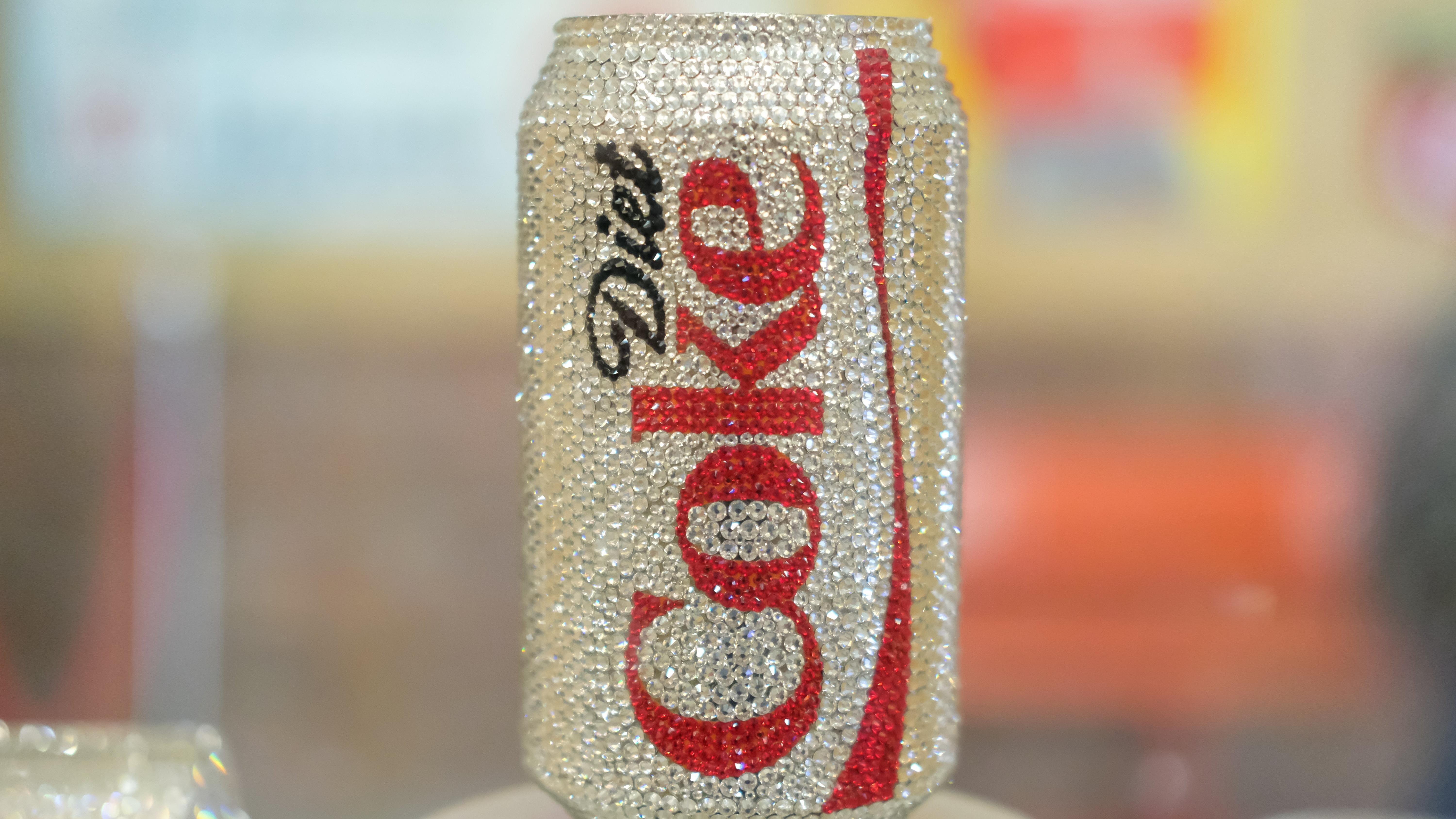Long Live Diet Coke
40 years after its creation, let's marvel at Diet Coke's perennial popularity.
There are two kinds of people in this world: those who love Diet Coke and those who don't. It's a real "if you know, you know" situation—it's impossible to describe to those who find it flavorless what makes the drink so enjoyable, but if you're a part of the DC cult, you don't have to explain a thing to your brethren. And it's because of that all-in fandom that the drink has enjoyed 40 years of consistent success.
My taste for Diet Coke didn't come until later in life, and the cravings came at a strange time. Seven years ago while going through chemotherapy, I suddenly felt a twinge in my tongue, one that was yearning for a sharp and metallic drink. I had never been a fan of diet sodas and in fact preferred an ice-cold regular Coca-Cola from a glass bottle over everything. But there in my moment of medical distress, the only thing that could satisfy me was Diet Coke straight out of the can. While my health has far improved since then, my Diet Coke lust has only gotten worse.
I know that "sharp and metallic" isn't an appetizing description of its flavor. I know that soda, even the diet kind, is "bad" for me. I know that The Coca-Cola Company has likely done some very distasteful things. Yet I sip on the stuff any chance I get, and I am far from alone.
The origins of diet soda
The first diet soda hit the market in 1952, a beverage called No-Cal that was created as an alternative for people with diabetes or cardiovascular problems, Fast Company explains. But once Kim Novak stepped in as the celebrity spokesperson, it became seen as the drink of dieters. By 1958, Diet-Rite Cola was released by Royal Crown, and soon diet sodas were all the rage.
Coca-Cola had attempted to enter this growing market a few different times before landing on Diet Coke. That's partially because it took a while for executives to allow the brand name to be "tainted" with a potentially less popular, less tasty drink. In 1963, Tab, which mimicked the flavor of cola, was released, then in 1966 Fresca hit the market and rose to popularity as a low-cal grapefruit soda. It wasn't until 1982 that Diet Coke arrived on the scene. BuzzFeed notes that the introduction of this product marked one major difference in the diet soda space: Suddenly the drink was no longer exclusively for women on diets. This soda was for everyone, and the marketing skewed heavily toward getting men on the diet soda train.
The stars who helped popularize Diet Coke
Previous Coca-Cola advertising focused on abstract characters, like the Christmas polar bears, to sell the product. But according to BuzzFeed, with Diet Coke came the company's full force push into celebrity endorsements. Hoping to appeal to men, the Coca-Cola Company tapped the likes of Judd Hirsch, Phil Esposito, and Evander Holyfield to rep the brand. This approach caused the soda to infiltrate Hollywood, and by 1988 The New York Times was calling Diet Coke the film industry's "drink of choice," reporting that, among others, Jeffrey Katzenberg, chairman of Walt Disney Pictures, was drinking 12 cans of Diet Coke a day.
In 1996, Diet Coke tapped the stars of Friends to reach a new generation of soda drinkers, who had more or less fallen off the diet soda trend. It surged once again, and by 2011 Diet Coke beat out regular Pepsi as the #2 soda in the country.
While Diet Coke might now be up against the popularity of sparkling water brands like La Croix and the public's increasing distaste for the word "diet," the beverage still seems to dominate the pop culture conversation. Over the years plenty of famous people have gushed about their love for Diet Coke—fashion designer Karl Lagerfeld admitted to drinking 10 cans of Diet Coke a day, The Real Housewives of Salt Lake City cast member Lisa Barlow is rarely shown on screen without a Diet Coke in her hand, and earlier this year we discovered that Ben Affleck has a Diet Coke soda fountain in his home.
This year, in honor of its 40th anniversary, Diet Coke has tapped Kate Moss as creative director of the brand, and Moss has drawn inspiration from her own fashion archives to design a line of limited-edition cans. It feels like an attempt to return Diet Coke to its roots as something that's seen more as a trendy accessory than a drink. But for those who love it, Diet Coke doesn't need to do anything flashy to keep us coming back for more. Even as the drink's global popularity ebbs and flows, the Diet Coke diehards will always keep drinking it, no matter what the can looks like or who's hawking it. For us, Diet Coke is forever.
